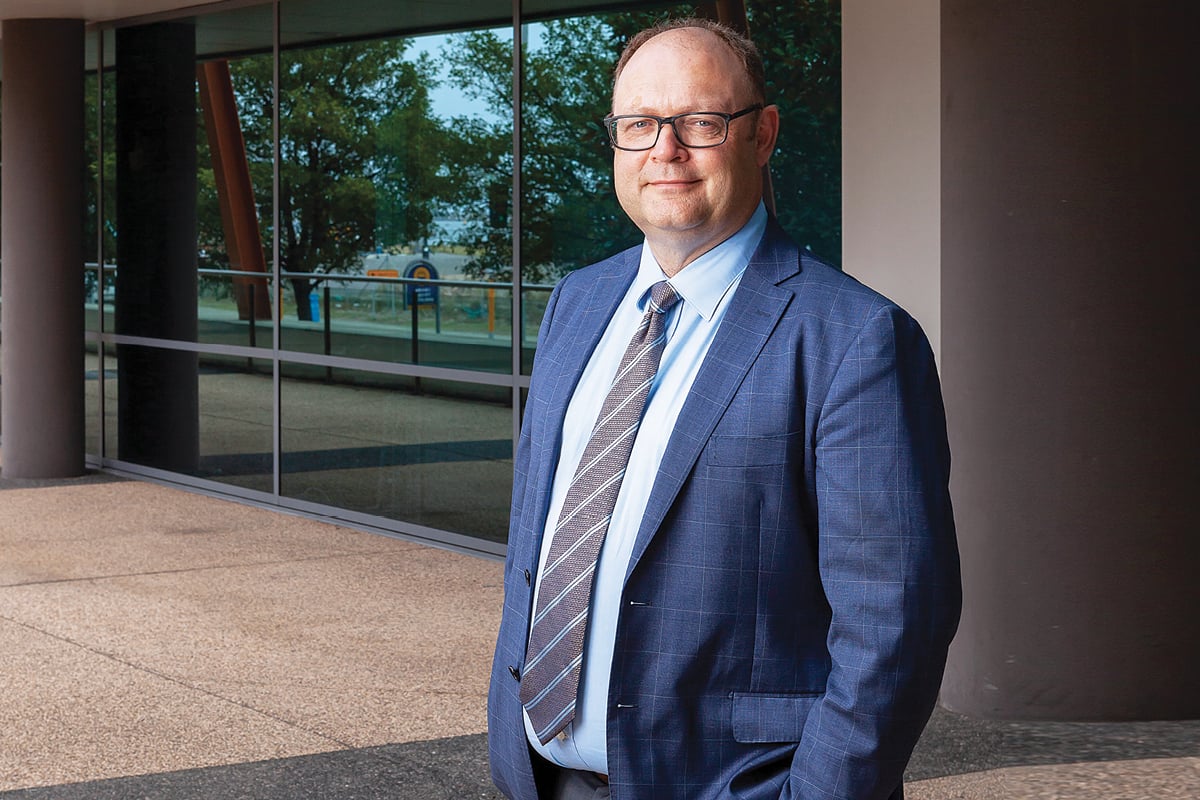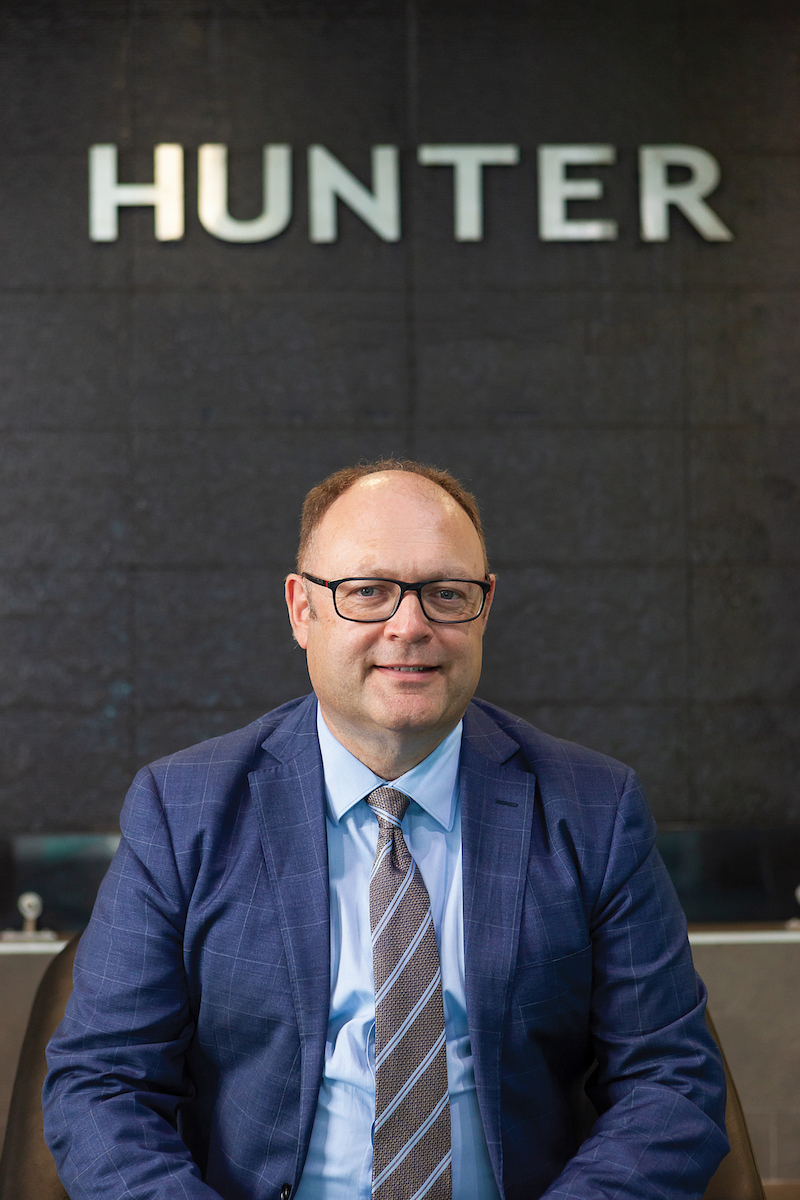It’s been a couple of years since The CEO Magazine chatted with Dr Jim Bentley, Managing Director of Hunter Water. In 2017, he’d been in Newcastle for just a year, and while adapting easily to the Novocastrian way of life, beaches and weather the obvious highlights, Jim was intent on spearheading change for the region’s relationship with water.

That meant forging partnerships beyond government organisations and veering away from a rigid compliance mentality. It also meant working with local consumers to understand why they are using 191 litres a day on average (10% more water than their peers in some other Australian cities), and to encourage them to think twice before turning on the tap.
With a population expected to rise 18% in the next couple of decades, the Hunter, just two hours north of Sydney, is on track to be the fastest-growing region in Australia. Hunter Water is investing A$110 million over the next year in upgrading wastewater infrastructure to improve its performance and cater for population growth, while over the next decade another A$1.2 billion will be spent on pipes, mains, pumps, reservoirs, treatments plants, sewers and water recycling facilities.
Last year, Hunter Water partnered with global engineering consultancy WSP, which came on board as Project Program Manager (PPM), to drive efficiency, improvements and engagement in the delivery of its large, complex capital works program for essential water and wastewater services and networks over the next six years. However, Jim recognises more is needed to encourage the Hunter’s almost 600,000 residents to use less water.
He launched a marketing campaign, one which the Englishman himself concedes could have been “a little naff”, but instead proved that a little love for our precious resource goes a long way.
The CEO Magazine: How successful have you been in leading Hunter Water on a more creative and independent path?
Jim: One of the most exciting things has been to understand how we could become a learning organisation. We wanted to change the relationship we have with our customers and bring about a different kind of water future, and apply those principles to our messaging in terms of how we use water.
A lot of utilities in Australia talk about water-wise rules and how you must comply with them. So, I looked at hope and optimism,belonging, curiosity, creativity, and realised that telling people what to do all the time doesn’t tick any of those boxes. I told our marketing team to go away and come back with the outline of a campaign around people’s water behaviour without mentioning rules.
“I told our marketing team to go away and come back with the outline of a campaign around people’s water behaviour without mentioning rules.”
What was the result?
The result was going from Water Wise Rules to Love Water, a brand we use for events and sponsorship. It’s two blue water droplets in the shape of a heart, which sounds very twee but fundamentally is a signal to us, our community and customers that we’re all in this together.

The kind of events we sponsor now are very different. Rather than sponsoring big macho things like the rugby league, we sponsor Music in the Podium at Lake Macquarie, where thousands of people from the community enjoy light music by a beautiful lake.
It’s very different, less about strength and robustness and more about togetherness and belonging.
The relationship we have with those stakeholders and partners has been transformational, while the message to our community is that we’re not here to tell you what to do, but we’re here to learn and build with you.
It’s been amazing how this has taken off throughout our organisation in each department.
If it was just a piece of marketing it would be a bit naff, but this is the very essence of how we are working with people under the Love Water banner, which all links back to those learning power principles.
What impact has the campaign had on water usage in the region?
While it is still early days, there are signs behaviour change is contributing to a reduction in our water consumption. When climate considerations are removed from the picture, our modelling suggests our customers are using three to 4% less than they otherwise would have been.
This is a step in the right direction as we work to extend the time between now and when we need to decide on our long-term future. Far too often, the solution is to build expensive infrastructure, which is not always in the best interests of the community. Our community’s effort to save water has helped us provide support to farmers in the Upper Hunter who are experiencing some of the toughest drought conditions in the state.
Since August last year, with the assistance of partnering councils, we’ve provided more than two million litres of drinking water to properties in need.
How have you used technology to help preserve the Hunter’s water supply?
Over the past two years we’ve significantly increased our active leak detection work, using smart technology systems to detect hard-to-find leaks, and reprioritised customer-reported leaks. So far, we’ve reduced leakage by nearly 20%, and while I’m encouraged by this progress, we will continue to invest in this area and focus on making further improvements.
Describe the relationship you have been building with WSP?
It’s very positive. We entered into this PPM partnership with a clear understanding and agreement about how it needed to work to be successful, and while still in its infancy I think it is fair to say the partnership has more than met our expectations.
We have established a matrix structure of engagement and collaboration as we develop a more inclusive and diverse organisation that fosters a culture of learning and innovation.
What impact has WSP had on cultural changes within Hunter Water?
We are forming one integrated team to deliver our capital program over the next six years. Importantly, there is no ‘us’ and ‘them’. More than simply providing additional resources to help deliver our projects, WSP is helping Hunter Water grow its capability in a number of other areas.
We’re drawing on the expertise and insight they’ve gained from international experience in other industries and sectors to find innovative ways to help us deliver better outcomes for our customers and communities and ensure that we can apply world-leading knowledge in support of continued safety improvements.
Hunter Water and Hunter H2O have enjoyed a rich history together. What is the advantage of having a local partner?
It is very important to Hunter Water to have partners who know our business well, like Hunter H2O, whose local knowledge is particularly valuable in enabling successful upgrades to our treatment plants.
Our partnership was recognised recently, with an engineering excellence award for innovation in water supply and wastewater from the Institute of Public Works Engineering Australia in 2018. Both organisations worked together with local civil and mechanical contractors to design and deliver critical upgrades to our wastewater treatment plants at Belmont and Cessnock.
Despite facing some significant implementation challenges, the team developed a range of innovations during the planning and design stages to ensure the projects were delivered safely and on time.
You work closely with Veolia and H L Mullane & Son. How instrumental have they been in Hunter Water’s efforts?
The A$279 million contract signed with Veolia in 2014 was the largest ever awarded by Hunter Water. Veolia operates and maintains 25 of our water and wastewater treatment plants.
Working with this leading global water company not only gives us confidence that our plants are being managed to a high standard, but provides opportunities for our staff to keep their own knowledge and capabilities up with international best practice.
Working closely with H L Mullane & Sons on a range of important projects, we are impressed with the company’s ability to think and act as we would, and with the team’s responsiveness to our needs. Most importantly, we can see the emphasis it places on health and safety.

What is the best piece of advice you have been given or heard?
To help people connect with purpose. At an organisational level, spending time understanding and communicating what we’re here for and why it matters has always paid off for me. And at an individual level, working with colleagues to help them identify their purpose and values, and how these align with the organisation’s purpose, has often proved to be very powerful.
What are you most proud of?
We have challenged the traditional ways of thinking for infrastructure providers and monopoly utility businesses. This has opened us up to more adaptive, incremental and innovative opportunities as we now value ‘keeping our options open’ overbuilding certainty too soon.
As a result, we have reduced the volume of water loss from our system by nearly 20% in a little over two years and embarked on a range of initiatives and engagement approaches with our community under the Love Water banner.
By engaging with customers to understand how we can learn together to create a more sustainable water future, rather than by telling customers what the ‘water-wise rules’ are, the early indications are that enough customers are changing their water use behaviour.
We’ve also halved the time taken to process developer applications, and in a mystery shopper rating of how our call centre performs in customer experience, we have risen from the middle of the pack to second out of 22 utilities in less than a year. All of these achievements have been brought about by our teams rediscovering an appetite for change and excellence. That’s something I’m really proud of.
How do you maintain a work-life balance, particularly in a Managing Director role?
Outside of work, I think balance is achieved by doing things which have meaning, especially things with a community focus, and things which are fun.
On the meaning side of things, I get a lot from mentoring young businesspeople from my local church and from chairing a charity that builds schools in the developing world.
As far as fun is concerned, I’d like to say what joy it gives me to follow England in sport, although I imagine that might be hard to believe!


